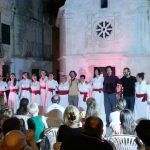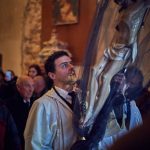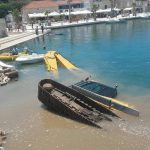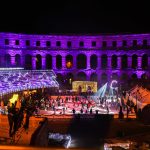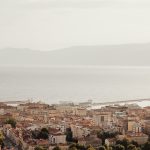March 27, 2020 – It is 25 years since Jelsa hotels had no tourists, but back in 1995, there were very full, as a local resident recalls.
It is going to be a very strange summer for everyone. Having lived in a tourist destination (Jelsa on Hvar) and finding myself self-isolating here, the prospect of empty hotels and no tourism is hard to imagine, even before one imagines the pain that will cause the local economy. As I wrote recently in Hope v Reality: Will There Be a 2020 Tourist Season in Croatia?, while we all hope this will be over soon, a look at the realities of the situation and how the world will look on the other side make for some sober reading.
But Jelsa, and many other destinations in Croatia, are no strangers to the tourism season being ravaged. The Homeland War in the 1990s killed tourism, but that did not mean that Jelsa hotels were empty, far from it.
Instead of tourists, the hotels slowly filled with internally displaced people from Vukovar and other parts of Slavonia, followed by refugees from Bosnia. Jelsa schools accommodated the kids, and the new arrivals from war-ravaged areas began a prolonged stay.
I am very grateful to erstwhile TCN contributor and unpaid typo-controller-in-chief in the early days of Total Hvar, Vivian Grisogono, for this fascinating account of her recollections of the war years in Jelsa:
“I came over to Hvar as soon as the blockade was pushed back, possibly during my visit (bringing various bits of aid to Zagreb and Split) in June 1992, certainly for my Fact-Finding Mission on behalf of UNDP / UNHCR which I did between 9th & 21st August 1992. Whichever it was, my friends were delighted to joke that the aggressors had heard I was coming and taken their gunships away! as that happened just a few days before I got to the island.
Apart from the blockade, the island’s little air strip was bombed more than once, and had not been repaired at the time of my visit.This left the island totally isolated and vulnerable: no Canadairs to deal with the frequent forest fires, and no emergency medical airlift service.
My itinerary was through Slovenia and Croatia, looking at the report I did, it was quite hectic! Was supposed to go to Serbia & Montenegro as well, but UN couldn’t guarantee my safety, as technically I was still a Yugo citizen at the time. On Hvar Kruni Peronja was President of the Island (a post which is now defunct). The organization of facilities for the refugees was extremely impressive. I visited the Hotel Jadran, inspecting the (spotless) kitchen and living facilities. People making the best of it, but of course a hotel is not a true living space for families. Even less comfortable was the former children’s holiday camp (Grebišće) where again the kitchen was spotless, but the living accommodation was sparse – rooms generally had 3 beds which took up almost all the available space, and the building was already in a state of disrepair (though not as bad as now)
My record shows that as at 17th August there were 624 displaced persons (many from the Vukovar region) and 3727 refugees on the island. 1323 were housed in private lodgings, the rest in hotels or former holiday camps. Refugees were provided with a special id card which entitled them to benefits such as food & lodging. Displaced people also received small amounts of money. At the time, electricity was severely limited in Dalmatia because of the occupation of the Peruća dam – there was a point when electricity was only available for a few hours at night. Food was in short supply, firstly while the blockade lasted, and then because of the transport difficulties across the country – remember that Knin was blockaded, and the road detour from the north to the south of Croatia along the coast was complicated, not to say fairly dangerous (I did it later on towards the end of the war, when the dangers were minimal, but just going over the pontoon bridge put up in place of the Maslenica Bridge was a hairy experience at night, even without people firing at you!). On Hvar, heating for the refugees and displaced persons had been a problem during the winter, and was set to be a problem again after the summer.
There was of course a lot of unemployment on the island as tourism was reduced to zero, and a lot of people had optimistically invested in their private tourist facilities when Croatia declared independence in 1991. Locals had priority for such jobs as were available, so refugees / displaced persons had little or no chance. The lack of meaningful activity and income created severe psychological hardship.
Disabled refugees could not be accommodated on the island, but there were plans to receive groups of convalescents for rest, recreation and rehabilitation. Some of the facilities which were mooted for the purpose could have been adapted for wheelchairs users. The programme would have provided employment, and would have been a long-term benefit for the island, but it didn’t happen, and indeed facilities for disabled wheelchair users are still extremely limited.
The other thing of note was that the local authorities had taken great trouble to protect property belonging to absent Serbs at that time, being aware that one day the war would end and they would be coming back. The feeling was that those who had not participated in the war should be made welcome at that later time, and should not be given cause for resentment. Quite a lot of those properties were offered for sale at knock-down prices. (As you know, after the war a few Serb-owned properties were commandeered by various incomers, which was sad, but probably inevitable, given the level of anger and frustration which was engendered by five years of misery.)
On the positive side, a lot of Hvar residents went out of their way to help the refugees and displaced people feel comfortable, even though they themselves were suffering their own hardships among all the uncertainties of the war. Friendships were forged which lasted way beyond the end of the aggression. Some of the refugees / displaced persons remained on the island and carved out new lives for themselves. Hvar’s exquisite environment is a great bonus, but it wasn’t easy for anyone in those long years of the war and its aftermath.”
You can learn more about Vivian’s environmental initiatives for the island and wider world on her Eco Hvar website.

